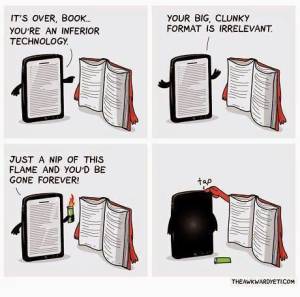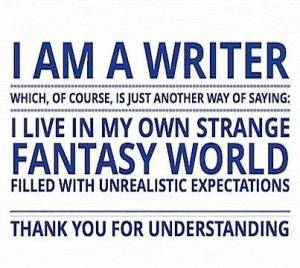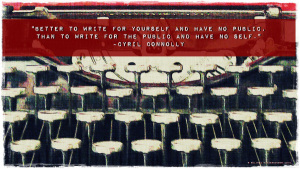
Like throwing a pebble into the water some writers put advice out into the ocean of hopeful newbies hoping the ripple effects will reach them and they will learn a thing or two. Fridays here at The Writer’s Advice is pebble collection time. I will post some of the pebbles of wisdom I discover and I encourage you all to do the same. Each Friday we will help each other. So here are mine….show me yours!
- Ten Mistakes Writers Don’t See (But Can Easily Fix When They Do)-http://www.holtuncensored.com/hu/the-ten-mistakes
- Writing Suspense: Fiction vs. Reality - http://www.michelemartinez.com/article_writing_suspense.htm
- Five Things That Stop You Writing - http://live.guru/articles/five-things-that-stop-you-writing
© The Writer’s Advice, 2014. Unauthorized use and/or duplication of this material without express and written permission from this blog’s author and/or owner is strictly prohibited.
Like this:
Like Loading...
Tags: advice, book, creation of character, inspiration, Inspire, Jai Colvin, Jai Farris, learning, novel, novelist, organization, organize, structure, time management, writer, writers, writing, Writing Pebbles, Writing tools
I do a lot of ghost writing. While I wish I was independently wealthy and had enough money to just work on my books…alas…I don’t, therefore I take other writing jobs. I do actually enjoy ghost writing, as a journalist for many, many years I have always loved telling other people’s stories, but, as with any writing job, ghost writing has its pros and cons.
One of the largest “cons” if you will is the writing itself. While I am always motivated to do the work, sometimes my clients are not. They begin the project with me and almost always there comes a time when they (the client) start to drop off a bit. I have to wrangle them back and refocus them back towards the project. Sometimes it is easy because the client is invested in the project but at other times clients get side tracked by everything else. It is for this reason that when signing a contract I try and make it very clear to the client that they have to commit to the project.
Ghost writing is just that, ghost writing, you are writing someone else’s story. If they don’t tell you the story there is nothing to write. Then it gets into a time wasting effort and no one has the time or money for that. So in an effort to help other writers out there who want to ghost write, here are some things to say to a potential client BEFORE signing the contract…
1. Make sure you are committed to the project – Just because a client puts a down payment down it doesn’t necessarily mean they will stay focused.
2. Explain the way you work – Remember that often times the person you are ghost writing for knows nothing about how writing works. They instead have a romantic notion which is often wrong. Explain the writing process so there are no misunderstandings.
3. Set a specific number of times to meet each week. If you are working for someone with a lot of time on their hands they can take over your life. Set it out in the contract that you agree to meet X number of times.
4. Explain the way the payment plan works – almost all ghost writers work with payment plans; set specific goals and then stick with them. You don’t want the project to start costing you money and it will.
5. Goals are fluid – Life happens so it is important to write that into the contract. Make sure that your client understands that sometimes life slows us down and it’s okay.
6. Finally, you have to finish at some point – Your client has to take part in the process. You have to be able to get the story from them and the only way to do that is to work together.
These are just a few things to consider telling a client before signing that contract. Remember that the contract binds you both.
© The Writer’s Advice, 2014. Unauthorized use and/or duplication of this material without express and written permission from this blog’s author and/or owner is strictly prohibited.
Like this:
Like Loading...
Tags: advice, author, book, freelance, ghost writing, inspiration, Inspire, Jai Colvin, Jai Farris, learning, novel, novelist, organization, organize, publisher, publishing, telling story, writer, writers, writing, writing job, writing process, Writing tools

I am a gadget person. What does that mean? Well, it means that my spouse hates it when something new comes out that makes noise or lights up. It means that my office is a cornucopia of toys that walk, talk and otherwise flash cool colors. It means that whenever a new “tool” (that’s what I call them, “tools” it kind of makes that whole justification thing easier when it comes to spending the money) comes out, I HAVE TO HAVE IT!
Now keep in mind that this means I have collected a lot of crap over the years that now has a place in a box in the garage but now and again I end up with something really helpful. Case in point, my Galaxy Note 10.1. I love this gadget and, to some degree, it has really been helpful with my writing. I can write anywhere, anytime and I can have my work where ever I go. Yes I had to buy all the accessories - the mouse, which required a special piece that allowed it to plug into the Note, a case that allows the Note to stand at the right angle when working on it, the keyboard because everyone knows how awkward the on-board keyboard on a tablet is and a bag to carry it all in. Yes my spouse looked at me sideways when the cash register just kept ringing up but in the end I love the Note and will upgrade at some point. Here’s the problem though…I don’t fully use it in the way it was intended because, well, I’m kind of old fashioned.
While it is fun to collect gadgets, when it comes to an actual functional gadgets that allow you to work better, change can be tough. I am used to my laptop and it is easy to use. Everything is all in one place and I don’t have to “learn” anything. It’s easy, it’s known and the unknown is what scares me. So instead of using my Note to it’s full potential I play at it. I learn just enough to look like I can justify the price of it and I go no further. I am screwing myself.
Here’s the thing fellow writers…time is a tickin and it waits for none of us. We can all sit on our laptops or, heaven forbid, our paper and pencils, and never feel the rush that comes with making our job easier and more accessible or we can get on board and meet the future face first. Yes technology is wonderful and yes it can also be frustrating because we have to learn a new thing but in the end you have to ask yourself am I wasting time with the old school ways? I know I have been. My Galaxy makes it easier to see clients and do work onsite, I don’t have to lug around my laptop which weighs more and it gives me access to whatever I need whenever I need it…I just have to learn how to use it properly.
So here is my challenge to you my fellow writers….embrace technology. Check out the new gadgets and see what might work to help you do what you do better. I know young writers who are churning out several books a year; they have embraced the future. I would also challenge you all to share here on the comments below what kind of newer technology you have been using. If it works for you it may just help some of the rest of us too.
© The Writer’s Advice, 2014. Unauthorized use and/or duplication of this material without express and written permission from this blog’s author and/or owner is strictly prohibited.
Like this:
Like Loading...
Tags: advice, author, book, Galaxy Note 10.1, inspiration, Inspire, internet, iPad, Jai Colvin, Jai Farris, learning, novel, novelist, organization, organize, pen, publisher, publishing, telling story, time management, writer, writers, writing, writing process, Writing tools

Wrongly….yep…yesterday someone used that word at me. I say “at me” because when a person, especially a so-called writer, uses a word in a way that is annoying it is like getting slapped in the face. Come on people….words are your thing…they are what you do….use them correctly and for Pete’s Sake…don’t overuse them!
Here are some examples of writers gone stupid and/or words we should always stay away from.
- Basically, essentially and totally – Three more useless words in writing you will be hard pressed to find. These words add nothing but word count spaces. Your sentence almost always improves without them. And don’t get me started on the whole “totally” phase the kids are into right now.
- Irregardless – THIS IS NOT A WORD! No one word will annoy me faster than this one.
- Thusly - Whenever I read a writer who uses this word it screams one thing to me, he/she is trying to sound smarter than they are. The words thus or therefore go a long way and don’t make you sound like you are trying too hard.
- Paradigm, synergy, leveraging; thinking outside the box, attacking low-hanging fruit, getting things done down and dirty and, worse of all, easy-peasy – Folks you are writers, so write…don’t use the overused crap that everyone from newscasters to the kids on the block are using. My spouse actually looked at me last night and asked, “What does easy-peasy mean exactly?” I had to shake my head and respond, “I’m not sure but it sure sounds stupid.”
- Literally – This is a biggie. Most people who use this word don’t actually realize what it means. “Literally” isn’t a word you use for emphasis. It’s a word you use when you say something that shouldn’t just be interpreted figuratively. If you say that you literally worked your ass off, it doesn’t mean that you worked really hard; it means you no longer have an ass. Stop misusing this please.
These are just a few examples. I am sure that many of you have your own examples of words gone wrong. Please take a moment and share them here so that we might help some other poor writer who doesn’t know any better.
© The Writer’s Advice, 2014. Unauthorized use and/or duplication of this material without express and written permission from this blog’s author and/or owner is strictly prohibited.
Like this:
Like Loading...
Tags: advice, author, book, editing, inspiration, Inspire, Jai Colvin, Jai Farris, learning, novel, novelist, publisher, story, structure, telling story, words, writer, writers, writing, writing process, Writing tools

Prostitution and Writing
“First you do it for the love of it,
Then you do it for the approval,
And finally you do it for the money.”
I’m not entirely sure who is credited with having said that but a friend of mine once gave me a small sign to hang on the wall that said it. She told me that it was to keep me focused on why I write. She was a fellow writer and I was just beginning my career as a newspaper reporter. She was already jaded in that way that a newspaper reporter can sometimes get because they feel they are just writing to keep the lights on. It made me sad.
I have been writing for over 30 years now and I am pleased to announce that I never got to be like my friend. I kept focused and I tried to take some time every day to remember why I write. Sure I paid the bills with my writing and there were times over the years when I would get resentful because I didn’t seem to have time to do “my writing” but, in the end I never became jaded. I still enjoy writing.
It is really easy to get caught up in the money making aspect of writing. I have had some very good projects over the years and I have to admit the money feels really good. I am sometimes tempted to cash in on that and over extend myself – take on an extra job or two – but then I stop and I think about it and I realize that by over extending my work will suffer and, frankly, the money isn’t worth it.
You will get lots of advice over the years. Folks will tell you to write for the reader, write for your “audience”, focus on writing for a friend, write for the market… (publishers love that one) but there really is only one person you should be writing for…you. If you like what you have done, chances are there is an audience out there for it…count on that and write what interests you. If you are passionate about your work others will be too and you know what, you will also be a better writer. So don’t do it for the money and become a writing prostitute…do it for the love of it and be the writer you should be. The money will come and when it does, it will be that much sweeter.
© The Writer’s Advice, 2014. Unauthorized use and/or duplication of this material without express and written permission from this blog’s author and/or owner is strictly prohibited.
Like this:
Like Loading...
Tags: advice, author, book, healthy, inspiration, Inspire, Jai Colvin, Jai Farris, novel, novelist, publisher, publishing, telling story, writer, writers, writing, writing process, Writing tools

Like throwing a pebble into the water some writers put advice out into the ocean of hopeful newbies hoping the ripple effects will reach them and they will learn a thing or two. Fridays here at The Writer’s Advice is pebble collection time. I will post some of the pebbles of wisdom I discover and I encourage you all to do the same. Each Friday we will help each other.
The Top 10 Reasons to Write Short Stories -http://writerswrite.co.za/the-top-10-reasons-to-write-short-stories
© The Writer’s Advice, 2014. Unauthorized use and/or duplication of this material without express and written permission from this blog’s author and/or owner is strictly prohibited.
Like this:
Like Loading...
Tags: author, book, inspiration, Inspire, Jai Colvin, Jai Farris, learning, novel, novelist, story, telling story, writer, writers, writing, Writing Pebbles, writing process, Writing tools
Okay, get your mind out of the gutter…I mean in chapter size. Let’s be honest, this has been an ongoing debate since the time of biblical writers. But does the size, of your chapters, really matter that much. Well, yes, but not for the reasons you think.
The size of your chapters has less to do with the number of pages you are trying to force and more to do with the way in which you write. When we write a story there is a concept called “pacing” and it is important if you are to write a good book. Everyone’s pacing is different but one thing that is the same is that the size of your chapters can be a key factor in who your pacing goes. The formula is simple…the shorter your chapters are the quicker is the pace of your story.
Now let’s think about this for a moment…if you are working in the garage and you are going along at a fairly decent pace, the garage will get done but you will also feel comfortable about how the job gets done. Your novel is the same way. If your chapters are short sometimes that makes for a tighter story. If your chapters are long but the pace is quick you can still achieve the tightness but detail will also be enhanced. Longer chapters may slow down while short chapters may influence the quality. Maybe now you see why it is such a debate.
There has been some argument over the years having to do with making all of your chapters exactly the same length. I personally thing think that this is lame. Some authors can, and have done this in the past such as Antony Trollope and Charles Dickens but I can’t make it happen. If the story is telling itself I hardly see how you can “make” it fit. I prefer to write and when it feels like a chapter has come to an end and there is a story shift, I take it. That feels natural for me.
So am I advocating one way of the other? Nope, not going to step into that trap…I am simply saying that you must do what is comfortable for you. Don’t let another writer tell you how long your chapters should be and for Pete’s sake don’t allow publishers to either. (they love to by the way) I believe that all stories create their own space and if you try and drop them into a box you are doing that story a disservice.
© The Writer’s Advice, 2014. Unauthorized use and/or duplication of this material without express and written permission from this blog’s author and/or owner is strictly prohibited.
Like this:
Like Loading...
Tags: advice, author, book, chapter, chapter length, creation of character, editing, editor, inspiration, Inspire, Jai Colvin, Jai Farris, learning, novel, novelist, organization, organize, publisher, size matters, story, structure, writer, writers, writing, writing process, Writing tools



